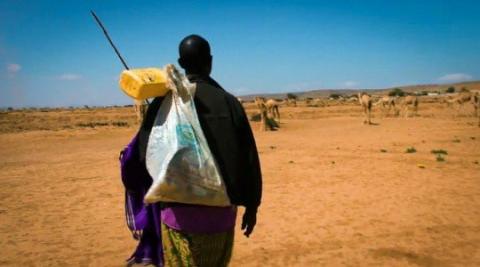Discover hidden stories and unheard voices on land governance issues from around the world. This is where the Land Portal community shares activities, experiences, challenges and successes.
 Follow our
Follow our
Sustainable Development Goals
Blog Series!
Interested in land corruption?
Follow our Land & Corruption Blog Series
for in-depth perspectives from the experts.
Issues
Geographical focus
Autor: Rui Daher
Fonte: https://www.cartacapital.com.br/economia/a-agricultura-familiar-esta-sob...
Caminhamos da burrice à sacanagem informativa, e os oligopólios-patrocinadores ganham força
By Roy Prosterman
Asia’s Tigers, the collection of booming economies that emerged in the East following World War II, are often hailed as economic miracles. There was, though, no “secret sauce” behind that sustained and broad-based economic growth. Rather, as Myanmar is poised to show, the key ingredient for a Tiger economy can be found right beneath our feet.
By Lewis Evans, Survival International
For Earth Day (April 22), Survival International reveals some of the amazing ways in which tribal peoples are the best conservationists and guardians of the natural world:
1. The Baka “Pygmies” have over 15 words for elephant
The Baka people know so much about elephants, they have different words for them according to their sex, age and even temperament.
By Julia Christian, Forest Governance Campaigner for FERN
Michoacán’s indigenous communities’ greatest resource is their forests. And they defend them with their lives.
By Anne Larson, Principal Scientist, CIFOR
The recent World Bank Conference on Land and Poverty, held this past March in Washington D.C., provided a unique opportunity to reflect on collective land tenure reforms not only from a research point of view, but also from that of governments.
By Jinmei Liu, Affiliated Researcher, Faculty of Social Science, Chiang Mai University; Consultant, EarthRights International
I wouldn’t say Chinese investors are not trying to take social responsibility seriously, but they must understand that the meaning of responsible investment is much more than a few corporate social responsibility (CSR) programs.
By Sonkita Conteh, Director, Sierra Leone Program, Namati
Three years ago I wrote about how communities in Sierra Leone were getting the short end of the stick in large-scale land transactions. Many did not understand the provisions of the complex lease agreements they were signing. Not only are these leases legally complicated, they are sometimes signed under pressure and are not always translated into a community’s local language.
By Monique Villa and Peter Rabley
What would happen if you suddenly lost your home? Beyond bricks and mortar, this is a safe place for you and your family. It’s your sanctuary, a space which is yours. If you were forced from it tomorrow, with no alternative, how would you survive?
By Phyllis Omido, Founder of the Center for Justice Governance and Environmental Action
The announcement of the winners of this year’s Goldman Environmental Prize is an opportunity to celebrate activist leaders. But it is also a moment to recognize just how much courage their efforts (and those of a great many others) can demand.
Scientists present their findings on forest tenure and land use at a major conference in Peru
Peru - Latin American countries have made progress in granting land rights to communities in recent years. Nevertheless, policies often fail to consider the diversity of those communities and the different ways they use their land.
This blog originally appeared on UNDP
16 Jun 2017 by Phemo Kgomotso, Regional Technical Specialist, Ecosystems and Biodiversity, UNDP Regional Service Centre for Africa
Would forced migration end, if people knew that they could survive and thrive in their homeland?











